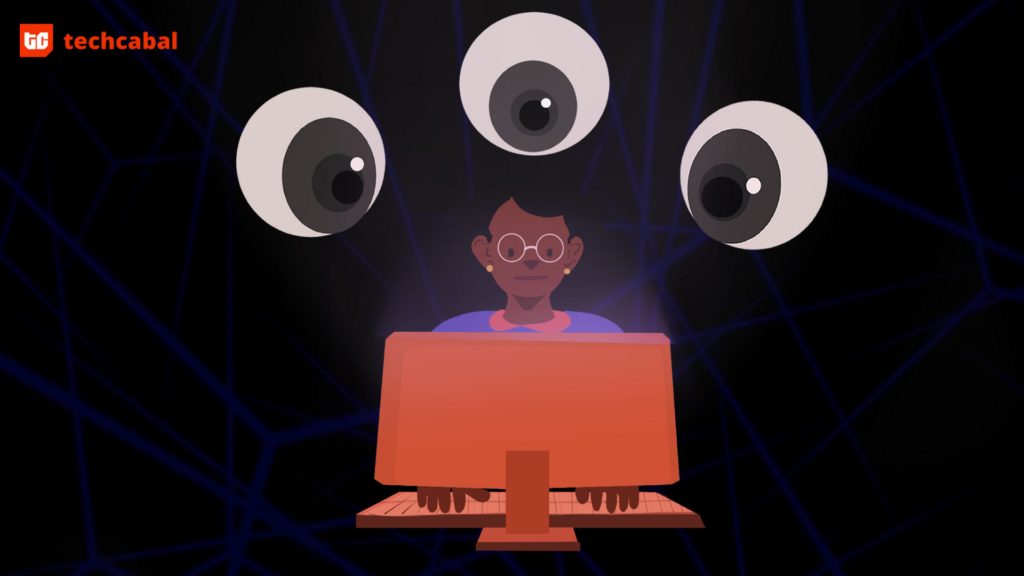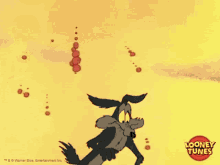
IN PARTNERSHIP WITH



Good morning ☀️ ️
WhatsApp is testing a new feature that will let you forward stickers without downloading or viewing them.
Presently, the only way to send a sticker is to manually send it from your saved favourites, but with the new feature, you’ll be able to send stickers without saving them.
While this could be a useful feature, they should probably focus on removing that pesky “This message was deleted” notice, so we can all make mistakes in peace. 🙏🏿
In today’s edition
- Ugandan telcos vs data protection laws
- Zimbabwe introduces a new levy for phones
- Making VAR better
- Jack Dorsey resigns as Twitter’s CEO
UGANDAN TELCOS VS DATA PROTECTION LAWS

In 2019, Uganda implemented its first codified legislation on data protection, the Data Protection and Privacy Act.
The act establishes principles surrounding the protection, collection, and storage of customers’ personal data. It also designates the National Information Technology Authority – Uganda (NITA-U) as the official regulator for data protection in the country and lays out penalties for violators.
Since its implementation, Uganda’s core data privacy act has proven to be an effective regulator…to some extent anyway.
Unwanted attention
A recent report from Unwanted Witness—a Uganda-based civil society organisation—reveals that the nation’s tech companies are still struggling with compliance with the act.
Telecommunication operators are at the core of Uganda’s digital development and yet are among the worst offenders on privacy violations, raising questions about their ability to protect sensitive user data.
The 2021 report reveals that telecom operators in Uganda fail to give adequate information to data subjects, mention third-party sharing of personal data, and give information on the quantity of information they share. This resulted in a low overall score of 35% for the industry when it came to data compliance.
These digital failures have real-life consequences including cyber fraud and hacking.
Alexandria Williams has more in Are Ugandan telcos equipped to protect user data?
ZIMBABWE INTRODUCES A NEW LEVY FOR CELL PHONES

It looks like Zimbabwe is taxing everything electronic now.
The Zimbabwean government, in 2014, introduced a 25% tax on imported phones to boost dwindling government revenue as its economy slid backwards. In 2019, the country also introduced a 2% levy on all electronic transactions, a tax which contributed at least 14% of the total revenue collections in the first quarter of that year.
Now, the government is introducing an additional $50 levy on all new smartphones. Here are the highlights:
- In addition to an existing 25% import tax, all new cell phones will carry a $50 levy.
- The $50 levy is part of Finance Minister Mthuli Ncube’s quest to increase the country’s revenue stream to shore up the proposed spending budget for 2022, which has doubled.
- New levies will also be placed on other products, including a 5% levy on imported dairy products and a 5% increase on excise duty for cigarettes.
- Unlike other levies which are collected by state revenue authorities, the new levy will be collected by telecom operators like Econet and NetOne.
- By placing the responsibility on mobile network operators, Ncube hopes to prevent people from evading the tax because they’ll be mandated to pay the tax to register their phones.
In Ep. 3 of Artwork, learn how to build a passionate community around your content.
👉🏾 Watch now.
This is partner content.
MAKING VAR BETTER

The introduction of the Video Assistant Referee (VAR) to the game of football three years ago was supposed to help referees make precise decisions faster, but it’s still not living up to expectations when it comes to offside decisions.
Over the weekend, VAR set a new record in Italian Serie A football league with five minutes and 20 seconds to check Tammy Abraham’s offside in the build-up to a Roma penalty against Torino. During the long wait, Roma coach Jose Mourinho was increasingly frustrated on the touchline, asking what was taking so long, meanwhile the Nigerian but English international, Abraham, resorted to juggling with the ball just as a warm-up exercise to keep himself in the game.
Incidents like this break the flow of the game, which can be frustrating for both fans and players. But since the offside rule is one of the most controversial and complex laws of soccer, it’s expected that there’ll be future occurrences like this if something isn’t done.
FIFA’s been listening
In response to the notoriety of offside decisions, the world governing body of soccer, FIFA revealed that it’s been working on a semi-automated offside technology, which would be deployed at the FIFA Arab Cup which begins today.
How it works: According to FIFA’s Football Technology & Innovation Director, Johannes Holzmüller, about 10 cameras will be placed alongside the stadium’s roof which will track 29 data points (mostly skeletal movements) per player 50 times every second.

In the event of a potential offside offence, the artificial-intelligence-aided software will send an alert directly to the VAR team, so they can review it quickly. The VAR team then sends its decision to the referee.
Zoom out: Earlier this year, former Arsenal manager and the current FIFA Chief of Global Football Development, Arsene Wenger, complained that an average VAR call takes 70 seconds—a long time in the game of soccer where every second counts. Hopefully, the semi-automated offside technology would help reduce this, this time.
Join the Future Africa Collective—an exclusive community of investors who invest in startups building the future. With a $300 quarterly fee, you get access to invest a minimum of $2,500 in up to 5 high-growth African startups.
This is partner content.
TWITTER SAYS GOODBYE TO JACK DORSEY

Yesterday, Twitter was awash with news about itself.
In a press release, Jack Dorsey announced his resignation as CEO. “There’s a lot of talk about the importance of a company being ‘founder-led’,” Dorsey tweeted. “Ultimately I believe that’s severely limiting and a single point of failure. I’ve worked hard to ensure this company can break away from its founding and founders.”
Jack will hand over the reins to Chief Technical Officer (CTO), Parag Agrawal, who joined Twitter as an engineer in 2011 and has served as CTO since 2017.
What’s up with that?
According to Jack, “This was my decision and I own it.”
But people are speculating that the pressure may have gotten to him. Before yesterday, Jack ran two public companies: Twitter, and payments processing company Square Inc. While Twitter is valued at $40 billion, Square has a public-market worth over $90 billion.
In February 2020, Elliott Management Corporation—an investment firm with a large stake in Twitter—pushed for Dorsey’s removal as CEO, arguing that he was paying too little attention to Twitter while also running Square Inc. Dorsey responded by giving the firm a seat on Twitter’s 10-person board.
What this means for Twitter
According to Twitter, there will be no changes to the company’s previously shared goals for 2021 or 2023.
Other than Parag Agrawal stepping into the CEO shoes, the only other leadership change will be Bret Taylor, President and COO of Salesforce, who is now the new chairman of the Board, succeeding Patrick Pichette.
Meanwhile, Twitter’s stock climbed up by 11% following the announcement.
Big picture: Parag will join a host of other Indian-born CEOs of major tech companies including Microsoft’s Satya Nadella, Google’s Sundar Pichai, IBM’s Arvind Krishna, Adobe’s Shantanu Narayen, and Palo Alto Network’s Nikesh Arora.
Save 50% on transaction costs with instant, linked-account payments. Ideal for wallet funding, loan repayments, collections, and e-commerce checkouts.
This is partner content.
OPPORTUNITIES
- The African ChangeMakers Fellowship Programme for 2022 is now open to applications from African visionaries and innovators who want to upskill. Selected applicants will get a four-week digital online connectivity course and access to a network to share, connect, and collaborate. Check it out.
- Content writers and editors in Nigeria can now apply for the Decagon Content Writing and Editing Competition 2021. The competition seeks to promote a writing culture among young Nigerians. Winners will be awarded cash prizes up to ₦500,000 ($1,100). Write away.
- The Design, Product and Developer School Programme is open for applications from young Nigerians seeking to learn graphics design, product design and management, and software development. Read about the fully-virtual program.
What else we’re reading
- The Next Wave: Naira is still naira.
- NairaLife: He wanted to japa, then he got a job in oil and gas.
- Xiaomi wants to build a car manufacturing plant in China that can produce 300,000 electric cars annually.
- A US-based VC firm, SOSV, has selected three African startups—PricePally, MarketForce, and DXwand—for its latest cross-border cohort.



























